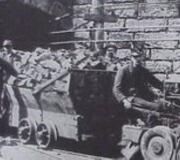Depiction of a merchant family in the drama thunderstorm. Depiction of merchant life and morals in drama
The play “The Thunderstorm”, written by Alexander Nikolaevich Ostrovsky in 1859, is the only one of the series “Nights on the Volga” conceived by the writer. The main theme of the drama is the conflict in the merchant family, first of all, the despotic attitude of representatives of the older generation (Kabanikha, Wild) towards the younger generation subordinate to him. Thus, the drama “The Thunderstorm” is based on a description of the life, foundations, and morals of a merchant family.
The owners of life in the city of Kalinov - rich merchants - defend their views regarding family norms and rules. The conservative morals that reign in the Kabanov family and are common for a family living in a small provincial town dictate that a “good wife,” “having seen off her husband,” howl while lying on the porch; the husband regularly beats his wife, and both of them unquestioningly obey the will of the elders in the house. The model that Marfa Kabanova chose for herself is an old Russian family, which is characterized by complete lack of rights younger generation, and especially women. No wonder “all the faces, except Boris, are dressed in Russian.” The fact that appearance The residents of Kalinov are far from the appearance of modern (of course, for that time) people; Ostrovsky emphasizes the reluctance of provincial Russian residents and, above all, the merchant class to move forward on their own or at least not to interfere with the younger, more energetic generation from doing this.
Ostrovsky, describing merchant life and customs, draws our attention not only to the shortcomings of relationships in one or two individual families. We have the opportunity to notice that most of the inhabitants of Kalinov cannot boast of practically any education. Suffice it to recall the townspeople’s arguments about the “Lithuanian ruin” near the painted walls of the gallery. The situation in the Kabanov family, the relationship between Katerina and her mother-in-law does not cause any reaction from society. This suggests that such situations are common, typical for this circle, and it is not for nothing that the writer took the story of the conflict in the Kabanov family from life.
Another important aspect of the life of the merchants described by Ostrovsky is everyday life. This is a calm, measured existence, devoid of events. News about the capital’s life or distant countries is brought to the inhabitants of Kalinov by “feklushi”, even darker, ignorant wanderers, distrustful of everything new and unusual, like Kabanikha, who will not get into the car, “even if you shower her with gold.”
But time takes its toll, and older generation forced to reluctantly give way to young people. And even the cruel old Kabanova feels this, and the wanderer Feklusha agrees with her: “ Last times, mother Marfa Ignatievna, the last, by all accounts the last.”
Thus, Ostrovsky in his play describes the crisis of the provincial merchants, the impossibility of their continued existence while maintaining their old ideology.
Alexander Nikolaevich Ostrovsky wrote the play “The Thunderstorm” in 1859; it belongs to the cycle “On the Volga”. The work was based on a depiction of merchant life, or more precisely, the despotic attitude of representatives of the older generation towards the younger generation, subordinate to them. Rich merchants are the masters of life in the city of Kalinov. They defend their views on family norms and rules. Conservative morals reign in the Kabanov family, which are common for a family from a small provincial town.
According to these rules, the wife must, after “seeing her husband off,” lie down on the porch and “howl.” The husband must regularly beat his wife to make her compliant. And both of them must unquestioningly obey the elders in the house. Marfa Kabanova also chose this pattern of behavior in the family. In her family, the younger generation is completely powerless, especially women. This is an example of an old Russian family, which is emphasized by the attire of the heroes - everyone is “dressed in Russian”, except Boris. The appearance of the inhabitants of Kalinov does not resemble the appearance contemporary people's time. The author emphasizes the reluctance of the residents of the Russian province and, first of all, representatives of the merchant class to move forward, and not to create obstacles for the younger generation along this path.
When describing merchant life and morals, Ostrovsky draws the reader’s attention to the shortcomings of family relationships. Moreover, we notice that most of residents of Kalinov have no education. An example of this is the reasoning of the townspeople at the painted walls of the gallery about the “Lithuanian ruin”. Katerina’s position in the Kabanov family and her relationship with her mother-in-law do not cause any reaction from society. Such situations were common for that time, so the conflict in Ostrovsky's play is realistic.
Another important aspect of the life of the merchants, depicted by the author, is everyday life, which is a measured existence, devoid of events. The life of the capital is told by ignorant wanderers - “feklushi”, who, like Kabanikha, are inaccessible to everything new and unusual.
In his play, Ostrovsky depicts the crisis of the provincial merchants, the lack of prospects for them further development while maintaining the same ideology.
Updated: 2013-05-09
Attention!
Thank you for your attention.
If you notice an error or typo, highlight the text and click Ctrl+Enter.
By doing so, you will provide invaluable benefit to the project and other readers.
The play "The Thunderstorm", written by Alexander Nikolaevich Ostrovsky in 1859, is the only one of the series "Nights on the Volga" conceived by the writer. The main theme of the drama is the conflict in the merchant family, first of all, the despotic attitude of representatives of the older generation (Kabanikha, Wild) towards the younger generation subordinate to him. Thus, the drama "The Thunderstorm" is based on a description of the life, foundations, and morals of a merchant family.
The owners of life in the city of Kalinov - rich merchants - defend their views regarding family norms and rules. The conservative morals that reign in the Kabanov family and are common for a family living in a small provincial town dictate that a “good wife,” after seeing her husband off, howl while lying on the porch; the husband regularly beats his wife, and both of them unquestioningly obey the will of the elders in the house. The model that Marfa Kabanova chose for herself is an old Russian family, which is characterized by complete lack of rights for the younger generation, and especially women. No wonder “all the faces, except Boris, are dressed in Russian.” By the fact that the appearance of the inhabitants of Kalinov is far from the appearance of modern (of course, for that time) people, Ostrovsky emphasizes the reluctance of the provincial Russian inhabitants and, above all, the merchant class to move forward themselves or at least not to interfere with the younger, more energetic generation from doing this.
Ostrovsky, describing merchant life and customs, draws attention not only to the shortcomings of relationships in one or two individual families. We are likely to notice that most of the inhabitants of Kalinov cannot boast of practically any education. Suffice it to recall the townspeople’s discussions about the “Lithuanian ruin” near the painted walls of the gallery. The situation in the Kabanov family, the relationship between Katerina and her mother-in-law does not cause any reaction from society. This suggests that such situations are common, typical for this circle, and it is not for nothing that the writer took the story of the conflict in the Kabanov family from life.
Another important aspect of the life of the merchants described by Ostrovsky is everyday life. This is a calm, measured existence, devoid of events. News about the capital's life or distant countries is brought to the inhabitants of Kalinov by "feklushi", even darker, ignorant wanderers, distrustful of everything new and unusual, like Kabanikha, who will not get into the car, "even if you shower her with gold."
But time has taken its toll, and the older generation is forced to reluctantly give way to the younger ones. And what’s more, the cruel old Kabanova feels this, and the wanderer Feklusha agrees with her: “The last times, Mother Marfa Ignatievna, the last, by all accounts the last.”
Thus, Ostrovsky in his play describes the crisis of the provincial merchants, the impossibility of their continued existence while maintaining their old ideology.
Depiction of merchant life and morals in the drama by A.N. Ostrovsky "Thunderstorm"
The play “The Thunderstorm”, written by Alexander Nikolaevich Ostrovsky in 1859, is the only one of the series “Nights on the Volga” conceived by the writer. The main theme of the drama is the conflict in the merchant family, first of all, the despotic attitude of representatives of the older generation (Kabanikha, Wild) towards the younger generation subordinate to him. Thus, the drama “The Thunderstorm” is based on a description of the life, foundations, and morals of a merchant family.
The owners of life in the city of Kalinov - rich merchants - defend their views regarding family norms and rules. The conservative morals that reign in the Kabanov family and are common for a family living in a small provincial town dictate that a “good wife,” “having seen off her husband,” howl while lying on the porch; the husband regularly beats his wife, and both of them unquestioningly obey the will of the elders in the house. The model that Marfa Kabanova chose for herself is an old Russian family, which is characterized by complete lack of rights for the younger generation, and especially women. No wonder “all the faces, except Boris, are dressed in Russian.” By the fact that the appearance of the residents of Kalinov is far from the appearance of modern (of course, for that time) people, Ostrovsky emphasizes the reluctance of provincial Russian residents and, above all, the merchant class to move forward themselves or at least not to interfere with the younger, more energetic generation from doing this.
Ostrovsky, describing merchant life and customs, draws attention not only to the shortcomings of relationships in one or two individual families. We have the opportunity to notice that most of the inhabitants of Kalinov cannot boast of practically any education. Suffice it to recall the townspeople’s arguments about the “Lithuanian ruin” near the painted walls of the gallery. The situation in the Kabanov family, the relationship between Katerina and her mother-in-law does not cause any reaction from society. This suggests that such situations are common, typical for this circle, and it is not for nothing that the writer took the story of the conflict in the Kabanov family from life.
Another important aspect of the life of the merchants described by Ostrovsky is everyday life. This is a calm, measured existence, devoid of events. News about the capital’s life or distant countries is brought to the inhabitants of Kalinov by “feklushi”, even darker, ignorant wanderers, distrustful of everything new and unusual, like Kabanikha, who will not get into the car, “even if you shower her with gold.”
But time takes its toll, and the older generation is forced to reluctantly give way to the younger ones. And even the cruel old Kabanova feels this, and the wanderer Feklusha agrees with her: “The last times, Mother Marfa Ignatievna, the last, by all accounts the last.”
Thus, Ostrovsky in his play describes the crisis of the provincial merchants, the impossibility of their continued existence while maintaining their old ideology.
Bibliography
To prepare this work, materials were used from the site http://www.ostrovskiy.org.ru/
The play “The Thunderstorm”, written by Alexander Nikolaevich Ostrovsky in 1859, is the only one of the series “Nights on the Volga” conceived by the writer. The main theme of the drama is the conflict in the merchant family, first of all, the despotic attitude of representatives of the older generation (Kabanikha, Wild) towards the younger generation subordinate to him. Thus, the drama “The Thunderstorm” is based on a description of the life, foundations, and morals of a merchant family.
The owners of life in the city of Kalinov - wealthy merchants - defend their views regarding family norms and rules. The conservative morals that reign in the Kabanov family and are common for a family living in a small provincial town dictate that a “good wife”, “having seen off her husband,” howl while lying on the porch; the husband regularly beats his wife, and both of them unquestioningly obey the will of the elders in the house. The model that Marfa Kabanova chose for herself is an old Russian family, which is characterized by complete lack of rights for the younger generation, and especially women. No wonder “all the faces, except Boris, are dressed in Russian.” By the fact that the appearance of the residents of Kalinov is far from the appearance of modern (of course, for that time) people, Ostrovsky emphasizes the reluctance of provincial Russian residents and, above all, the merchant class to move forward themselves or at least not to interfere with the younger, more energetic generation from doing this.
Ostrovsky, describing merchant life and customs, draws attention not only to the shortcomings of relationships in one or two individual families. We have the opportunity to notice that most of the inhabitants of Kalinov cannot boast of practically any education. Suffice it to recall the townspeople’s discussions about the “Lithuanian ruin” near the painted walls of the gallery. The situation in the Kabanov family, the relationship between Katerina and her mother-in-law does not cause any reaction from society. This suggests that such situations are common, typical for this circle, and it is not for nothing that the writer took the story of the conflict in the Kabanov family from life.
Another important aspect of the life of the merchants described by Ostrovsky is everyday life. This is a calm, measured existence, devoid of events. News about the capital’s life or distant countries is brought to the inhabitants of Kalinov by “feklushi”, even darker, ignorant wanderers, distrustful of everything new and unusual, like Kabanikha, who will not get into the car, “even if you shower her with gold.”
But time takes its toll, and the older generation is forced to reluctantly give way to the younger ones. And even the cruel old Kabanova feels this, and the wanderer Feklusha agrees with her: “The last times, Mother Marfa Ignatievna, the last, by all accounts the last.”
Thus, Ostrovsky in his play describes the crisis of the provincial merchants, the impossibility of their continued existence while maintaining their old ideology.
Katerina’s love for Boris temporarily increases the boundaries of the small world in which the girl still lives. Love illuminates her life, the girl begins to feel the joy of life, hopes for something beautiful, which she has not had before. Katerina feels so strong feeling first. The girl was forcibly married to an unloved man. Future life in the husband's house, constant nagging and humiliation from the mother-in-law kills the very possibility of love for the weak-willed and weak-willed Tikhon.
Katerina sincerely tries to love her husband. But apparently it’s not fate. Moreover, the constant presence of a cruel mother-in-law does not contribute to the emergence of romance in the relationship between Tikhon and Katerina. And Katerina is a romantic and dreamy person. The girl was very emotional since childhood. As you know, impressionable and emotional people cannot live in an atmosphere of dullness and despondency. They need to enjoy life, enjoy its manifestations, feel the beauty of existence.
Katerina for a long time tries to adapt to the way of life in the Kabanov family. But then he can’t stand it. Her love for Boris is a kind of protest against oppression, humiliation and slavery. How does Katerina see Boris? Of course, he seems to her to be completely different from Tikhon and most of the people around her. Every person, having fallen in love, tends to idealize the object of his love, and, of course, Katerina is no exception. She idealizes her beloved, he seems to her stronger, nobler and more exalted than he really is. What is Boris really like? At the very beginning of the work we learn its history. Boris's father came from a merchant family. But he married a “noble”, that is, a woman noble origin. Boris's father and mother lived in Moscow, because a noble and educated woman could not tolerate the order that reigned in the city of Kalinov? Boris says: “Mother said that for three days she could not get along with her relatives, it seemed very strange to her.”
Parents gave Boris and his sister an enviable upbringing. Could they have thought that their children would be forced to communicate with relatives known for their stupidity, hypocrisy and malice? Boris tells Kuligin about his life, and the reader clearly feels how difficult it was for the young man to get used to a new way of life: “Our parents in Moscow raised us well, they spared nothing for us. I was sent to the Commercial Academy, and my sister to a boarding school, and both suddenly died of cholera; My sister and I were left orphans. Then we hear that my grandmother died here and left a will so that my uncle would pay us the share that should be given when we come of age.”
Boris's uncle turned out to be the same landowner Dikoy, about whom there are literally legends, each more terrible than the other. He is cruel, and greedy, and angry. The uncle mocks his nephew in every possible way. And he cannot oppose anything to him. This is where the tragedy lies young man. He received a “greenhouse” upbringing, he was cherished and cherished from childhood. And he's missing mental strength and strength of character to fight difficult circumstances in which he found himself.
However, the young man compares favorably with the bulk of Ostrovsky’s characters. He looks smarter and more educated. He is cultured and educated. But at the same time, Boris is weak, and therefore is inactive and goes with the flow. He even brought misfortune to the woman he loved. Katerina gave him everything she could, sacrificed her honor, even her life. Boris did not have the courage to help the poor woman standing on the edge of the abyss.
From the very beginning Boris knew that love for married woman- crime. He noticed Katerina a long time ago, but did not dare to get to know her. When Boris starts talking about love with Kudryash, he tells him about local customs: “We are free about this. The girls go out as they please, father and mother don’t care. Only women are locked up.” And then Boris admits that he is in love with a married woman. Kudryash persuades him to give up this idea, because such love should be prohibited. “After all, this means,” says Kudryash, “you want to completely ruin her, Boris Grigoryich!”
What is Boris's reaction to these words? He assures in every possible way that in no case does he want to destroy the woman he loves: “God forbid! Save me, Lord! No, Curly, how can you! Do I want to destroy her? I just want to see her somewhere, I don’t need anything else.”
Why is Kudryash so sure that love for a married woman means death for her? Because he has lived all his life in the city of Kalinov and knows about the existing orders there. A woman who decides to cheat will never live in peace again. She will be condemned by anyone who is aware of such shame. Therefore, Kudryash tries to explain to Boris: “How, sir, can you vouch for yourself! But what a people here! You know it yourself. They’ll eat you and hammer you into the coffin.”
But Boris does not attach due importance to Kudryash’s words. Him in to a lesser extent He is worried about the fate of his beloved woman; his whim comes first for him. Of course, one cannot judge Boris too harshly. After all, he grew up in civilized Moscow, where, as you know, completely different laws reigned. Therefore, he cannot fully understand how different the order in the city of Kalinov is from the capital. Ion decides to achieve a meeting with the woman he loves at any cost.
Page 1 ]




